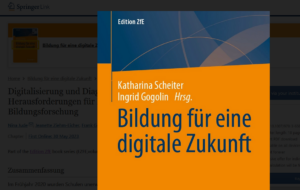In the spring of 2020, schools faced an unprecedented challenge as the pandemic disrupted traditional modes of instruction and school development. With on-site learning replaced by digital formats and distance communication, educators had to quickly adapt to the new normal.

Amidst these changes, the field of education encountered specific challenges related to digital school management, digital learning, and assessing learning progress. Particularly, computer-aided diagnostics emerged as a valuable tool for gaining insights not only into learning outcomes but also into the learning process itself. Researchers became intrigued by the potential of digital media in shaping learning experiences and how the resulting data could be effectively utilized in educational practice.
This paper explores the current challenges and potentials in computer-based, learning-accompanying diagnostics. The primary hurdles involve implementing suitable instruments within schools and providing teachers with the necessary training and professional development to utilize these tools effectively. By addressing these challenges, we can bridge the gap between the needs of educational practice and the aspirations of educational research, ultimately uncovering synergies that can benefit both.
Reference:
Jude, N., Ziehm-Eicher, J., Goldhammer, F., Drachsler, H., Hasselhorn, M. (2023). Digitalisierung und Diagnostik in Schulen – Herausforderungen für Bildungspraxis und Bildungsforschung. In: Scheiter, K., Gogolin, I. (eds) Bildung für eine digitale Zukunft. Edition ZfE, vol 15. Springer VS, Wiesbaden. https://doi.org/10.1007/978-3-658-37895-0_11
